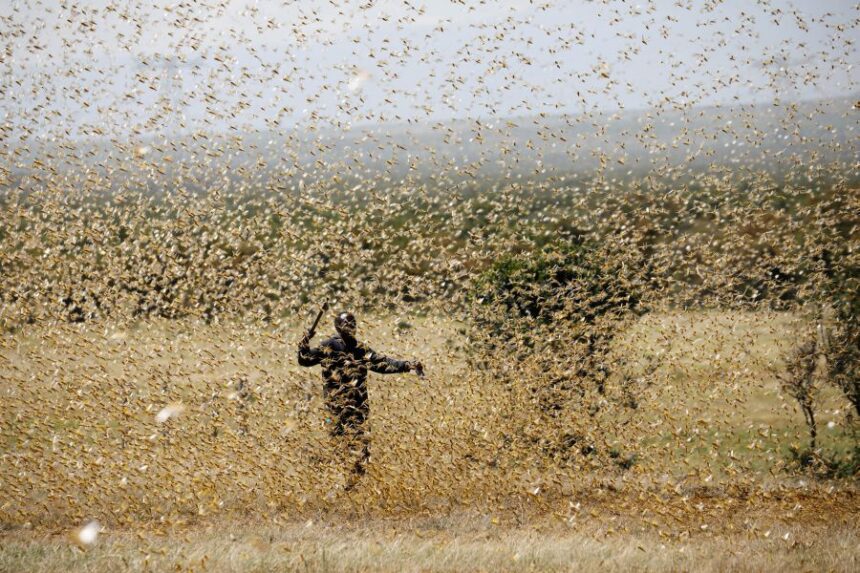African agriculture ministers began a two-day conference in the Kenyan capital, Nairobi, on Thursday to discuss ways to control locusts that threaten food security in the region.
Central and Southern Africa Board of Directors of the International Red Locust Control Organization must build strong regional cooperation to control the migration and emerging diseases and illnesses in the region.
In his opening remarks, Andrew Karanja, Undersecretary of the Kenyan Ministry of Agriculture and Livestock Development, called for continued monitoring, assessment and information sharing.
“We need to continue pooling resources to facilitate burden sharing, expertise and equipment to promote regional development,” Karanja told ministers and experts from East, Central, and Southern Africa.
- Advertisement -
Karanja said pest migration was negatively impacting food security in the country and hindering efforts towards the sustainable development goal of zero hunger and reducing poverty.
Kenya experienced its worst desertification in 2019-2021 after more than 70 years of silence.
Swarms of locusts spread across 28 cities across the country, destroying thousands of hectares of pastures and fields.
Karanja expressed his desire to find the pests in natural breeding animals such as army wolves and army wolves. He called for more research and development and to focus on developing new environmental biopesticides against tree locusts, African migratory locusts, desert locusts and quelea birds.










